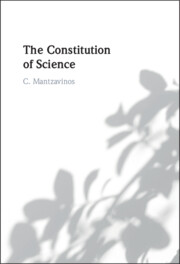Book contents
- The Constitution of Science
- Reviews
- The Constitution of Science
- Copyright page
- Epigraph
- Contents
- Acknowledgements
- Introduction
- 1 The Scaffolds Humans Erect on Science
- 2 Science and Values
- 3 Normativity
- 4 The Informal Institutions of Science
- 5 Core Scientific Activities
- 6 The Formal Institutions of Science
- 7 The Search for an Adequate Constitution
- 8 Five Principles for a Quasi-Autonomous Science
- Epilogue
- Excursus
- Notes
- References
- Index
Introduction
Published online by Cambridge University Press: 05 December 2024
- The Constitution of Science
- Reviews
- The Constitution of Science
- Copyright page
- Epigraph
- Contents
- Acknowledgements
- Introduction
- 1 The Scaffolds Humans Erect on Science
- 2 Science and Values
- 3 Normativity
- 4 The Informal Institutions of Science
- 5 Core Scientific Activities
- 6 The Formal Institutions of Science
- 7 The Search for an Adequate Constitution
- 8 Five Principles for a Quasi-Autonomous Science
- Epilogue
- Excursus
- Notes
- References
- Index
Summary
Science as an arena of epistemic activities has grown organically during a long process of cultural evolution. It is a major cultural achievement that was planned by no individual mind but emerged spontaneously as the unintended outcome of interaction between individuals engaging in epistemic activities. Science is a human endeavour, permanently unfinished, a project of humanity of astonishing range and success.
Information
- Type
- Chapter
- Information
- The Constitution of Science , pp. 1Publisher: Cambridge University PressPrint publication year: 2024
